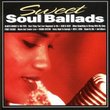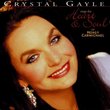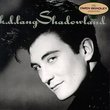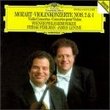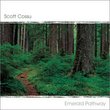| All Artists: Chopin, Ivan Moravec Title: Four Scherzi & Others, The Members Wishing: 1 Total Copies: 0 Label: Dorian Recordings Release Date: 3/5/1993 Genre: Classical Style: Number of Discs: 1 SwapaCD Credits: 1 UPC: 053479014023 |
Search - Chopin, Ivan Moravec :: Four Scherzi & Others, The
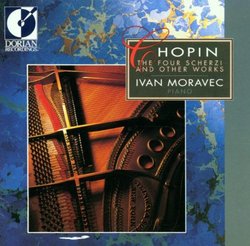 | Chopin, Ivan Moravec Four Scherzi & Others, The Genre: Classical
Czech pianist Ivan Moravec has long enjoyed a reputation among piano aficionados as one of the greatest living interpreters of Chopin (and Debussy). For whatever reason, he hasn't made all that many recordings, and the one... more » |
Larger Image |
CD DetailsSynopsis
Amazon.com Czech pianist Ivan Moravec has long enjoyed a reputation among piano aficionados as one of the greatest living interpreters of Chopin (and Debussy). For whatever reason, he hasn't made all that many recordings, and the ones he has made have seldom appeared on major labels. We're very fortunate, then, that Dorian--a top quality independent label if ever there was one--has captured some of his finest Chopin interpretations in state-of-the-art sound. Moravec's marvelous sense of rhythm, his poetic phrasing, and keen feeling for the structure of each of these little gems is really second to none. This is extraordinary playing by any measure. --David Hurwitz Similar CDs
Similarly Requested CDs
|
CD ReviewsSomething new under the sun Edwin J. Firmage | SLC, UT USA | 01/14/2005 (5 out of 5 stars) "Since it's obligatory for every would-be piano star to have a Chopin disc, and since the Scherzi are among Chopin's showier pieces, you'd think nothing new could be "said" about these pieces. Think again! Moravec's interpretation of No. 4 should bring you to tears. The whole disc is wonderful, but this particular piece is so far above the rest of the interpretive pack it justifies the cost of the disc on its own." Moravec Is Extraordinary And Never Disappoints! Raymond Vacchino | Toronto, ON. Canada | 12/01/2007 (5 out of 5 stars) "Ivan Moravec worked with Michelangeli and has an eclectic brand of pianism marked by stringent musicianship without the severity of the German school and a natural elegance without the tonal shallowness of the French school.
With his scherzos Chopin again presented us with a family group of four, but this time the resemblances are much more clearly marked, the significant one being the simplicity of their design. In the performances given by Moravec the simplicity is always forthright rather than naive, and his method of building, as usual, arises directly out of innate musicality and depth of understanding the nature of the material. Moravec conveys this material with arresting originality and shapes the phrases seamlessly allowing them to flow over the bar-lines with a a quite different sort of impetus. The principal material of each has highly contrasted ideas, and with each Moravec conjures the needed charge, urgency and drive. The trio-like middle sections are brought to the forefront by Moravec allowing their gentle character to sing with eloquent dialogue between the left and right hands, then producing a very grand effect as the original urgency comes back and crashes in creating finales that madly climax rushing to their evident conclusions. Now we come to the second set of Chopin Studies Op.25. The first, in A flat major, was the last to be composed. Moravec opens a whole new palette of musical colors and varying tonal sonorities. There is nothing superficial in this performance, in fact, Moravec's perfection of balance and originality are almost beyond analysis. He carefully follows the text to the letter defining the places where Chopin wishes the bass to be brought out, and on occasion inner parts in the right as well as the left hand. Moravec does this most discreetly; not too much in the manner of sentimentality, but with subtle nuances of sentiment. (Chopin detested sentimentality) The Study in C sharp minor is one of those elegiac pieces about which little can be said. Many regard it as the most musically perfect of all the studies. Moravec takes exceptional care when performing this study and respects its every demand. He makes the right hand as sustained as possible and allows the warm cello-like bass melody to float and linger throughout, always maintaining a perfect balance between the two. Moravec's pedalling is without doubt magnificent here; all the same, it is, I think, quite impossible to only use the pedal when Chopin marked it as I have performed it many times, and although I am not Moravec it is evident that he even makes beneficial uses of extra pedal points. The transformation of popular dances into forms of serious music is an achievement of genius, but it is easier to compare a Chopin mazurka with the folk-dance that is its primitive model even though, to be sure, cannot be traced to a single definite folk-model, but arise from a composite of certain types of melodies and rhythms which in this respect show Chopin's Polish-ness! Once again Moravec conveys his ability to perform magically in all of Chopin's various compositional styles as heard in the four chosen dances. His approach shows why there are so few direct references to folk-lore in Chopin's dances by the way he avoids being hemmed in by the primitive rigidity of these melodies in their entirety. On the other hand, Moravec readily lets himself be inspired by their elements: the sharpened fourth, the drone bass, the sudden triplets, the frequent use of feminine endings. In the Mazurka Op.41 in C sharp minor, Moravec brings in the very mature Op.41 group. He takes on one of the most technically demanding dances tossing off this austere Phrygian tune in fortissimo octave-chords towards the end of a coda that has started by piling up dominant functions right to the eleventh and thirteenth, in a grand, late romantic climax! Throughout the dances Moravec conveys the inner most common mood of nostalgia-more than that, of almost regal bitterness over the passing of Poland's glory? Certainly, the Slavic traits of Chopin's style are much in evidence here; modalities and rhythmic asperities abound in Moravec's playing and we are always made aware that the genius of Chopin is almost if not equally matched by the genius found in Moravec's virtuosity and interpretative accomplishments. Author: Raymond Vacchino M.Mus.(MT) L.R.S.M. A.Mus. Licentiate (honorary)" |

 Track Listings (10) - Disc #1
Track Listings (10) - Disc #1